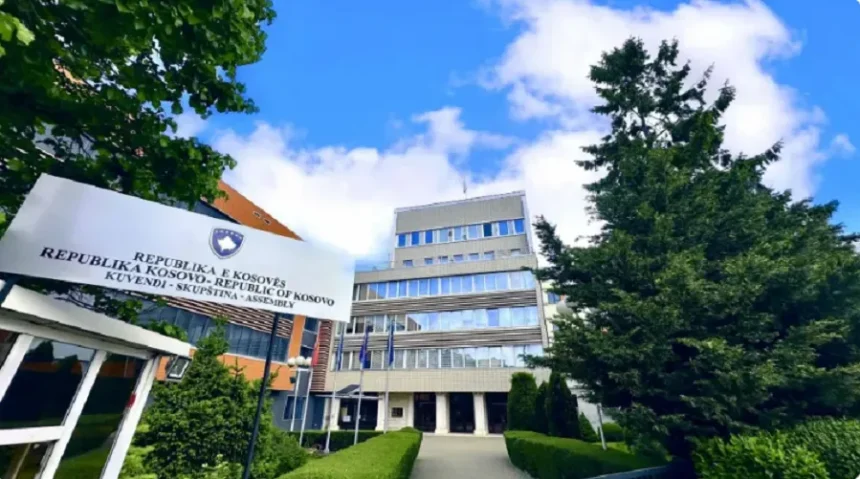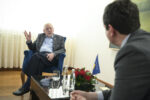Kosovo’s political stalemate continues, as the four main parliamentary parties — LVV, PDK, LDK, and AAK — remain entrenched in their positions, with no resolution in sight following the February 9 elections.
At Wednesday’s conference “Kosovo Toward the European Union: The Path to a Solution”, hosted by Lëvizja FOL and the Pristina Institute for Political Studies, party representatives expressed views that largely reiterated earlier stances, offering no concrete solution to break the deadlock.
Entrenched Views, Stalled Progress
LVV MP Armend Muja emphasized that rapid implementation of EU-derived standards is the best path to institutional and societal stability. However, others highlighted more nuanced views on the root of the crisis.
PDK’s Enver Hoxhaj argued that the February vote did not deliver a clear mandate — neither a full endorsement of Kurti’s government nor a definitive call for change. He called for creative and realistic interpretations of the electoral results to move forward.
LDK MP Jehona Lushaku stressed that the political crisis should be a lesson for parties to abandon propaganda and inflammatory rhetoric, which she believes obstruct true dialogue and progress.
Meanwhile, AAK leadership member Besnik Tahiri labeled the situation a “complete irresponsibility of all political parties” and urged opposition forces to move beyond legalistic debates and participate in a constructive political game to resolve the impasse.
Key Issue: Parliament Leadership Still Unresolved
The formation of the new Assembly remains stalled, as the coalition led by LVV — along with Guxo and Alternativa — fails to secure the 61 votes needed to elect Albulena Haxhiu as Speaker of Parliament.
Opposition parties continue to reject Haxhiu’s nomination, deeming her an unacceptable candidate, and demand a different nominee.
As the political gridlock persists, Kosovo faces increasing pressure both domestically and internationally to restore institutional functionality and preserve its democratic path.







